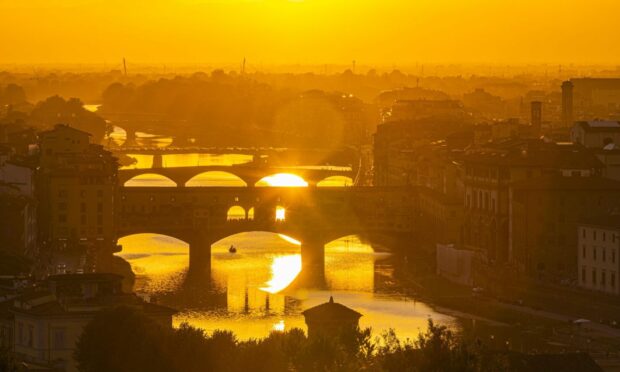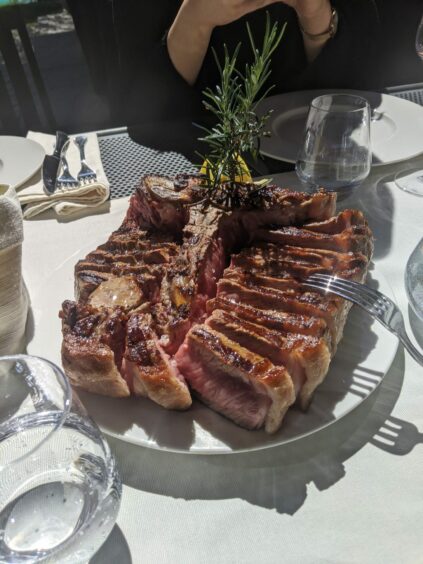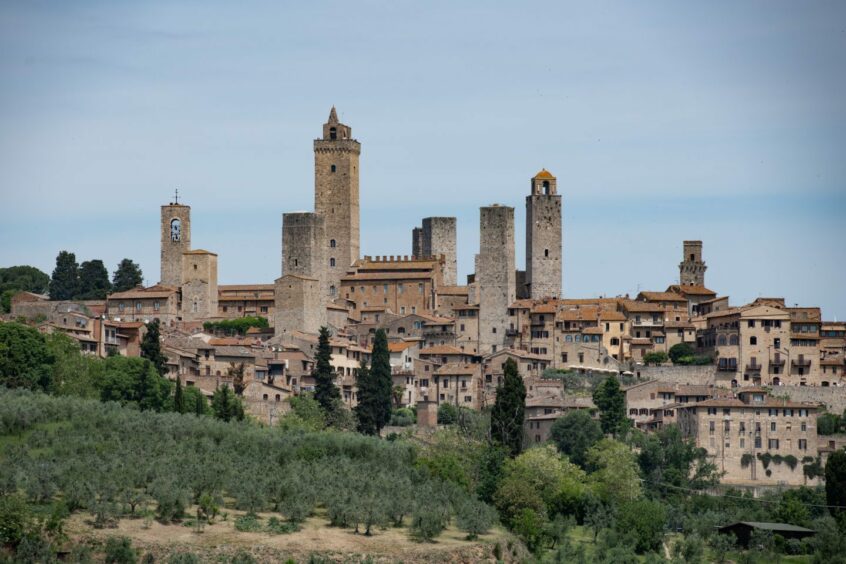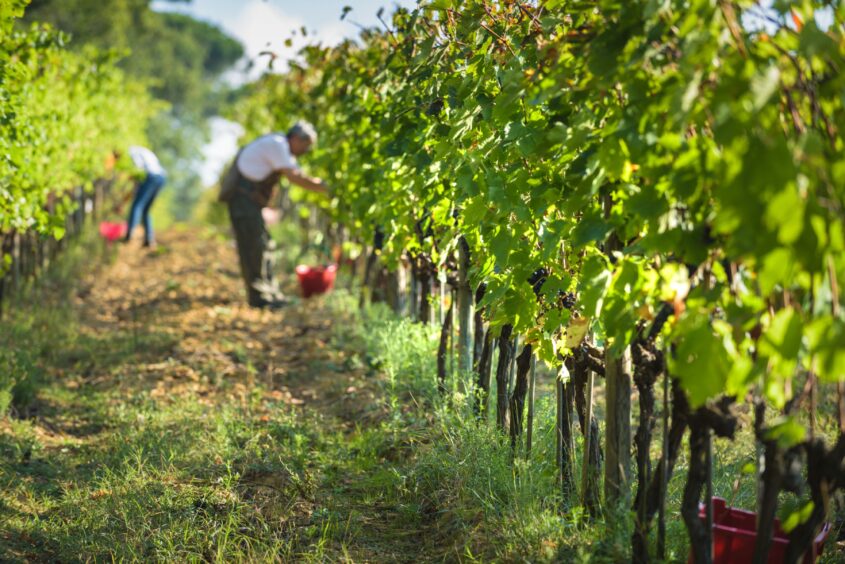1981, and I was hostelling around Europe. Florence was my next destination, but a fellow traveller told me not to bother. “It’s rubbish,” he exclaimed.
Stupidly, I took his advice – and regretted it for the next 40 years.
It’s now 2023, and I’m standing on the Piazzale Michelangelo – a small hill which gives you a view of the entire city with its terracotta roofs, the Duomo (cathedral), and, in the distance, the Tuscan hills. It’s just perfect, and I reminded myself (again) to be less accepting of other people’s judgment.
When visiting Florence, it’s easy to slip into cliches about small cafes, narrow streets, those terracotta roofs, and medieval buildings. Like a lot of cliches, they are true, but I don’t want to revisit them. You’ll almost certainly have a good idea what the place looks like, as it’s one of the most photographed cities in the world – for good reason.
Instead, let’s focus on other attractions – sensational food, and outstanding drink.
Let’s uncork some wine
Supermarket chain Lidl had organised a party of 12 journalists out to the city to sample wine, visit vineyards, and do a spot of dining. We were accompanied by Richard Bampfield, a Master of Wine and lead taster for the supermarket.
Stepping off the plane, we were ushered straight into a tasting session. Richard is the ideal person to have with you if you’re not a connoisseur (like me). Honest and non-pretentious, he knew his audience as well as his alcohol. His focus is on making wine accessible to as wide an audience as possible, with the emphasis on things like flavour, more-ishness and the way it works with food.
Fully refreshed, it was then time for a pasta-making class, run by Michele Gualtieri. Who knew this mysterious art was relatively easy? All you need (apart from ingredients, obviously) is some know-how and a little bit of time. An hour later, and we were sitting down to a meal which consisted of the class’s effort. Surprisingly, it was sensational.
This is a lesson I’m taking home with me.
The following day was a drive out to the Tuscan hills for a visit to the Piccini vineyards, a family-owned estate which produces 40 million bottles a year, and one of Lidl’s suppliers.
Before the tasting began, we jumped on quadbikes for a trip around the estate. A memorable afternoon, and, at the top of a hill, we paused for a drink with Richard opening a bottle of prosecco using a large and very scary knife.
The highlight, though, was sitting down for a meal with Piccini family. Florentine steaks were the main attraction – so huge and thick, they looked straight out of Tom and Jerry. But the quality of the beef was sensational. This is a traditional Tuscan meal, and the meat left on the bone is usually reserved for the older members of the family as it has the best flavour.
Not far away is the walled medieval village of San Gimignano. High up in the Tuscan hills, it’s a rarity in that it has changed little over the centuries. Towers are its trademark – but they weren’t built for defence – they were signs of wealth. Today 14 still exist, rising sharply from the cheek-by-jowl stone houses. An unforgettable sight.
A trip to one of the world’s greatest art galleries
The third day in Florence was going to be pretty much devoted to a single thing – the Uffizi. One of the greatest art galleries in world, it’s the city’s top tourist attraction, and a must-visit.
Wandering around, I thought to myself, this must have been where Stendhal Syndrome originated. For those of you who don’t know, it is a psychological condition which involves a rapid heartbeat, confusion and even fainting at the overwhelming sight of Florence’s abundance of great art. It may conjure up a picture of a 19th Century fop (hanky in hand) swooning, but as recently as 2018 someone had a heart attack on seeing Botticelli’s The Birth of Venus.
Of course, if this was a common occurrence, paramedics would be running in and out of the Uffizi all day, because the place was packed.
The gallery itself is so well laid out, you won’t miss a single picture or sculpture, as you are guided beautifully through the history of Western art (albeit mostly Italian) from the Middle Ages, through to the 19th Century, via works of Botticelli, Giotto (a personal favourite), Michelangelo and Da Vinci.
I survived without swooning once.
In all seriousness, though, it is genuinely overwhelming, and justifies numerous visits.
Leaving the gallery, and blinking in the afternoon sun, it was just a 15-minute walk to the Piazzale Michelangelo to take in that glorious view before returning to town and a stroll across the Ponte Vecchio, the city’s oldest bridge. Another icon, it was built in 1345, and is lined with shops, mostly jewellers. In some ways, it appears like any other Florentine street when walking along it. You’re not aware of crossing a river, so this beautiful attraction is perhaps best experienced from the outside.
The day was rounded off with a meal at Borgo San Jacopo. Looking out over the River Arno (and the Ponte Vecchio), it’s a Michelin-starred restaurant, run by chef Claudio Mengoni, who provided a seven-course tasting menu that is difficult to forget. How does steak tartare with truffles, oxtail tortelli, or turbot with fried cecina (a salted, dried meat) sound? (Other than sublime?)
Another glass of vino?
The final day was spent at the vineyard of another renowned Tuscan family – Sensi. Another Lidl supplier, they specialise in organic and vegan wines. This is a slightly controversial position to take in some circles (how do you kill off those pests?), but their wines nonetheless score high in terms of consistency, flavour and value-for-money.
Our final jaunt was to the small medieval village of Vinci, birthplace of a certain Leonardo. Surrounded by vineyards and olive groves, it is a magnet for tourists, but on the day we visited it was very quiet. Even the residents were indoors. It only takes an hour to walk the streets, but make sure you pay a visit to the museum.
As I headed to the airport I realised how tired I was. The four days in Florence and the Tuscan hills was just long enough to do a whistle-stop tour of the area, and an amazing amount of ground was covered, but there was still much left undone and unseen. (I hadn’t visited the statue of David, Il Duomo or strolled through the Boboli Gardens, to name but a handful of other attractions.)
Hopefully it won’t be decades before I return again.
INFO: Trip was organised by Lidl. Direct flights available from Edinburgh to Florence.





